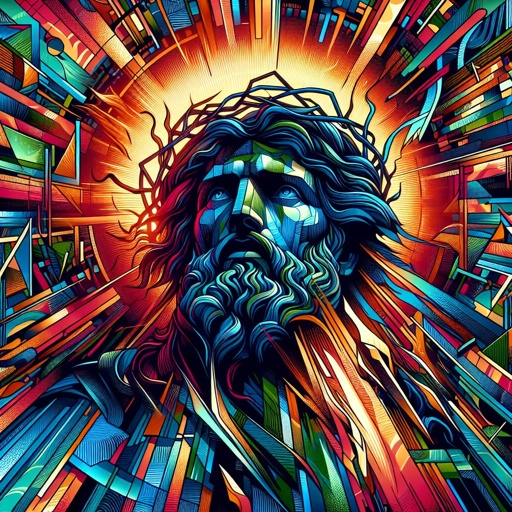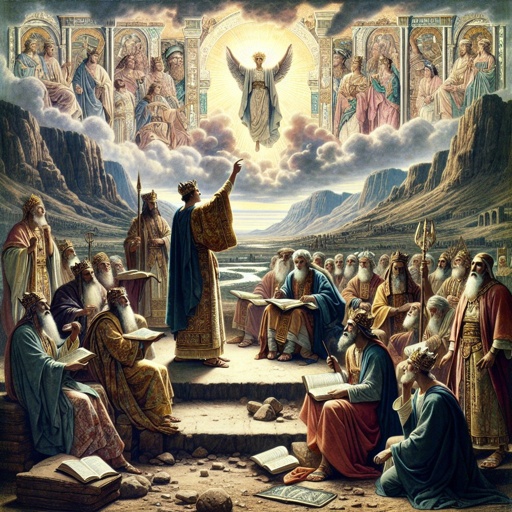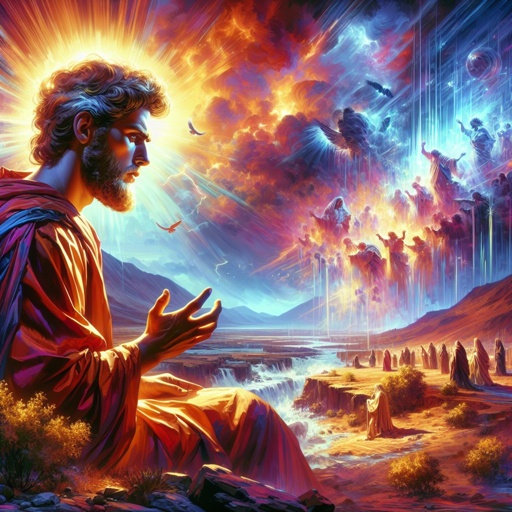What does Hosea 9:1 mean?
"Rejoice not, O Israel, for joy, as other people: for thou hast gone a whoring from thy God, thou hast loved a reward upon every cornfloor." - Hosea 9:1

Hosea 9:1 - "Rejoice not, O Israel, for joy, as other people: for thou hast gone a whoring from thy God, thou hast loved a reward upon every cornfloor."
The Bible verse Hosea 9:1 (KJV) states, "Rejoice not, O Israel, for joy, as other people: for thou hast gone a whoring from thy God, thou hast loved a reward upon every cornfloor." This verse is part of the Old Testament book of Hosea, which is a prophetic book that contains messages from God to the nation of Israel.
The context of this verse is a warning from God to the people of Israel about their spiritual unfaithfulness. Throughout the book of Hosea, God uses the metaphor of a marriage relationship to illustrate His relationship with the nation of Israel. The people of Israel have been unfaithful to God by turning to other gods and idols, and they have forsaken the true worship of God.
The theme of spiritual unfaithfulness is a central focus in this verse. The use of the term "whoring" is a strong and vivid image that conveys the sense of betrayal and promiscuity. The people of Israel have turned away from the pure worship of God and have sought after other gods and rewards, symbolizing their pursuit of material wealth and worldly pleasures.
The verse also conveys a sense of sorrow and disappointment on the part of God. The opening words, "Rejoice not, O Israel, for joy, as other people," indicate that the people of Israel should not celebrate or find joy in their current state of unfaithfulness. God is disappointed that His chosen people have strayed from Him and have pursued other gods and rewards.
The mention of "a reward upon every cornfloor" symbolizes the people's pursuit of material gain and prosperity at the expense of their spiritual relationship with God. In ancient times, the threshing floor was a place where grain was separated from the chaff, and it was a symbol of agricultural wealth and abundance. The pursuit of rewards on every cornfloor represents the people's focus on earthly riches and success, rather than on their spiritual well-being and devotion to God.
Overall, Hosea 9:1 serves as a powerful warning and rebuke from God to the people of Israel. It reminds them of their unfaithfulness and calls them to repentance and spiritual renewal. The verse also conveys the enduring love and faithfulness of God, who desires for His people to return to Him and experience true joy and fulfillment in their relationship with Him.
In conclusion, Hosea 9:1 (KJV) is a poignant and powerful verse that conveys a message of spiritual unfaithfulness and the longing of God for His people to return to Him. The verse uses strong imagery and symbolism to convey the depth of Israel's betrayal and God's disappointment. It serves as a timeless reminder of the importance of remaining faithful to God and the consequences of pursuing worldly rewards at the expense of our spiritual relationship with Him.
Hosea 9:1 Artwork

Hosea 9:1 - "Rejoice not, O Israel, for joy, as other people: for thou hast gone a whoring from thy God, thou hast loved a reward upon every cornfloor."

Hosea 1:9 - "Then said God, Call his name Lo-ammi: for ye are not my people, and I will not be your God."

Hosea 9:9 - "They have deeply corrupted themselves, as in the days of Gibeah: therefore he will remember their iniquity, he will visit their sins."

Hosea 9:5 - "What will ye do in the solemn day, and in the day of the feast of the LORD?"

Hosea 13:9 - "¶ O Israel, thou hast destroyed thyself; but in me is thine help."

Hosea 1:1 - "The word of the LORD that came unto Hosea, the son of Beeri, in the days of Uzziah, Jotham, Ahaz, and Hezekiah, kings of Judah, and in the days of Jeroboam the son of Joash, king of Israel."

Hosea 1:2 - "The beginning of the word of the LORD by Hosea. And the LORD said to Hosea, Go, take unto thee a wife of whoredoms and children of whoredoms: for the land hath committed great whoredom, departing from the LORD."

Hosea 9:2 - "The floor and the winepress shall not feed them, and the new wine shall fail in her."

Hosea 8:9 - "For they are gone up to Assyria, a wild ass alone by himself: Ephraim hath hired lovers."

Hosea 6:9 - "And as troops of robbers wait for a man, so the company of priests murder in the way by consent: for they commit lewdness."

Hosea 4:9 - "And there shall be, like people, like priest: and I will punish them for their ways, and reward them their doings."

Hosea 9:3 - "They shall not dwell in the LORD'S land; but Ephraim shall return to Egypt, and they shall eat unclean things in Assyria."

Hosea 9:11 - "As for Ephraim, their glory shall fly away like a bird, from the birth, and from the womb, and from the conception."

Hosea 9:13 - "Ephraim, as I saw Tyrus, is planted in a pleasant place: but Ephraim shall bring forth his children to the murderer."

Hosea 9:8 - "The watchman of Ephraim was with my God: but the prophet is a snare of a fowler in all his ways, and hatred in the house of his God."

Hosea 9:17 - "My God will cast them away, because they did not hearken unto him: and they shall be wanderers among the nations."

Hosea 9:14 - "Give them, O LORD: what wilt thou give? give them a miscarrying womb and dry breasts."

Hosea 5:9 - "Ephraim shall be desolate in the day of rebuke: among the tribes of Israel have I made known that which shall surely be."

Hosea 2:1 - "Say ye unto your brethren, Ammi; and to your sisters, Ruhamah."

Hosea 7:9 - "Strangers have devoured his strength, and he knoweth it not: yea, gray hairs are here and there upon him, yet he knoweth not."

Hosea 12:9 - "And I that am the LORD thy God from the land of Egypt will yet make thee to dwell in tabernacles, as in the days of the solemn feast."

Hosea 10:9 - "O Israel, thou hast sinned from the days of Gibeah: there they stood: the battle in Gibeah against the children of iniquity did not overtake them."

Hosea 1:5 - "And it shall come to pass at that day, that I will break the bow of Israel in the valley of Jezreel."

Hosea 1:8 - "¶ Now when she had weaned Lo-ruhamah, she conceived, and bare a son."

Hosea 9:7 - "The days of visitation are come, the days of recompence are come; Israel shall know it: the prophet is a fool, the spiritual man is mad, for the multitude of thine iniquity, and the great hatred."

Hosea 9:16 - "Ephraim is smitten, their root is dried up, they shall bear no fruit: yea, though they bring forth, yet will I slay even the beloved fruit of their womb."

Hosea 11:1 - "When Israel was a child, then I loved him, and called my son out of Egypt."

Hosea 14:1 - "O Israel, return unto the LORD thy God; for thou hast fallen by thine iniquity."

Hosea 9:12 - "Though they bring up their children, yet will I bereave them, that there shall not be a man left: yea, woe also to them when I depart from them!"

Hosea 11:9 - "I will not execute the fierceness of mine anger, I will not return to destroy Ephraim: for I am God, and not man; the Holy One in the midst of thee: and I will not enter into the city."